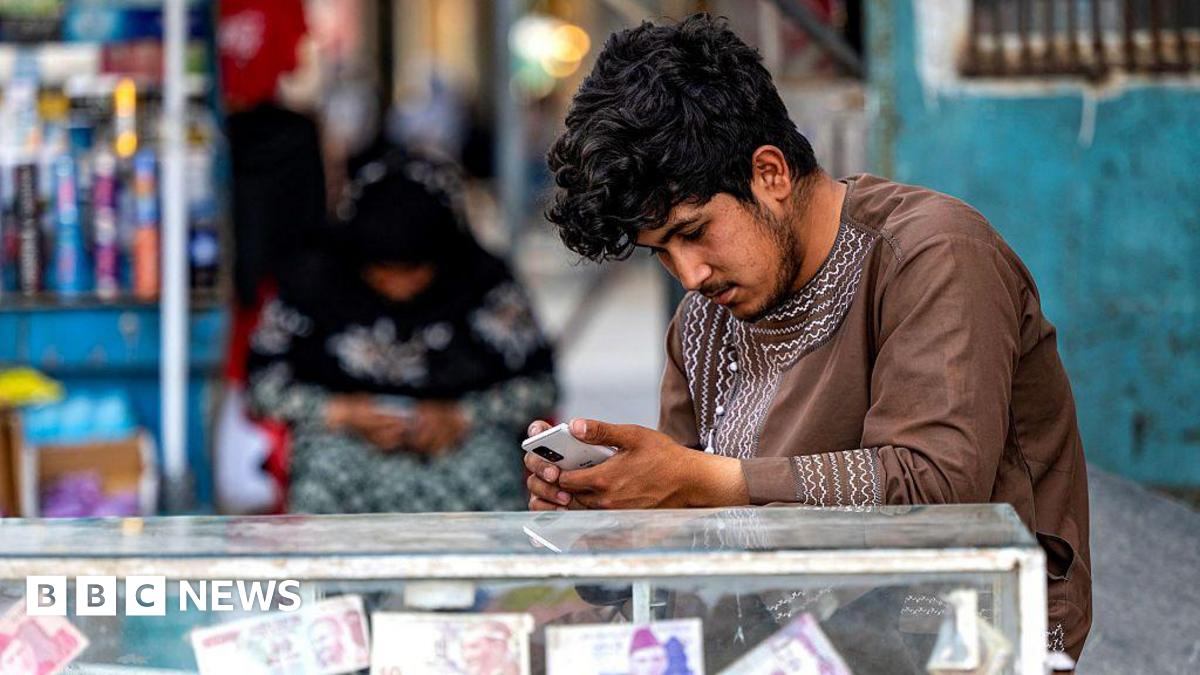Flights from Kabul airport have also been disrupted, according to reports.
Several people in Kabul have told the BBC that their fibre-optic internet stopped working towards the end of the working day, around17:00 local time (12:30 GMT)
Because of this, it is understood many people will not notice the impact until Tuesday morning, when banking services and other businesses are due to resume.
Fibre-optic cables transfer data super fast, and are used for much of the world’s internet.
In a post on social network Mastodon.social, external, Netblocks said:
“Afghanistan is now in the midst of a total internet blackout as Taliban authorities move to implement morality measures, with multiple networks disconnected through the morning in a stepwise manner; telephone services are currently also impacted”.
For weeks internet users in several Afghan provinces have been complaining about either slow internet access or no connectivity.
The Taliban earlier said an alternative route for internet access would be created, without giving any details.
Business leaders at the time warned that if the internet ban continued their activities would be seriously hit.
Hamid Haidari, former editor-in-chief of Afghan news channel 1TV, said after the shutdown that “loneliness enveloped the entire country.”
“Afghanistan has now officially taken first place in the competition with North Korea for [internet] disconnection” he said on X, external.
